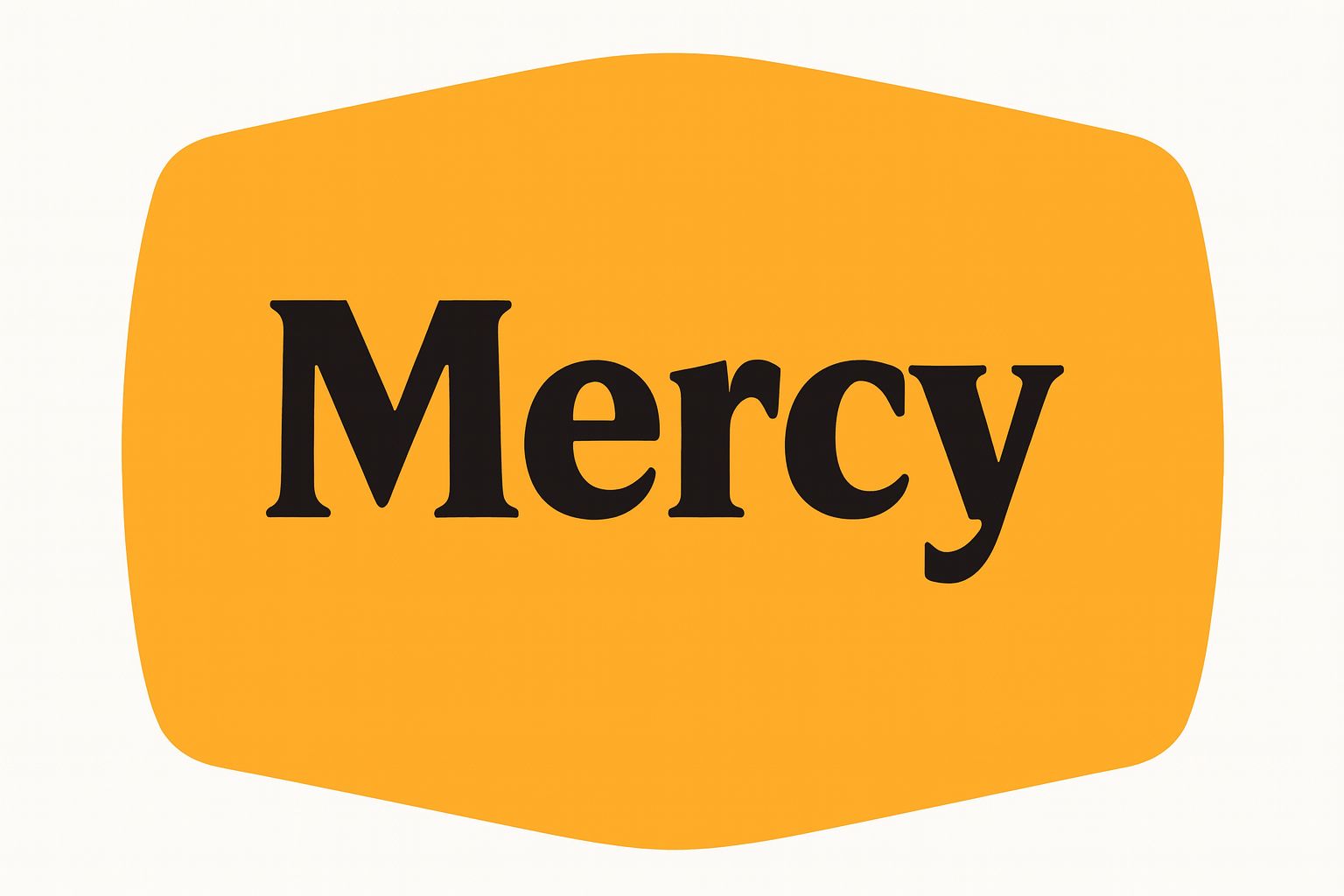
Mercy never trends on LinkedIn.
Scroll through your feed and you’ll see takes about everything from A.I., to leadership frameworks to the Cracker Barrel $CBRL ( ▲ 1.11% ) logo redesign…or not.
(To see the dunks, click here).
Everyone’s got an opinion. Everyone’s a brand strategist.
But mercy?
No one is doing much of that.
Cracker Barrel and My Son’s Confirmation
My son is beginning preparations for his upcoming confirmation.
Mercy is the theme, and it has me asking where this actually shows up in real life.
So then I start thinking about Cracker Barrel again, as one does.
The logo dropped, the comments came fast. Half claimed “losing heritage,” half celebrated “modernizing identity.”
It turns out they’re not making the change.
But, very few said, “Maybe they’re just trying something new.”
That pause, resisting the reflex to attack, that’s what mercy looks like.
It’s rare. But it scales.
When a Business Chooses Mercy
Intuit $INTU ( ▲ 3.7% ) does something rare. They celebrate failure.
As a former CPA, I have a real love-hate for Intuit. Yes, the TurboTax company.
I don’t want to date myself here, but I used to have pride in doing my personal taxes by hand. Literally filing in the boxes with pen and mailing in the forms.
Then came TurboTax. It was so easy. I plunked down the money and never looked back.
(Now I have a CPA working for me…it’s embarrassing, really).
Back to Intuit.
They recognize the biggest and best failures within the company. Teams get recognized publicly for big swings that didn’t work. They throw failure parties. Executives show up and applaud.
According to the founder, Scott Cook, every failure teaches something important that can be the seed for the next great idea.
The message is: trying and missing is still better than not trying at all. When you fail, you’re that much closer to hitting it big.
Now, of course folks on LinkedIn post about failure, too. It goes like this:
I once did something wrong, but I learned from it, then raised my 4th fund, and now I own a yacht, here’s a picture of my cute kids”.
Not the same thing.
Intuit provides a brief opportunity to show mercy at the organizational level. Honoring mistakes.
It builds a culture where risk is encouraged. And guess what? Intuit’s sustained innovation is no accident. When people know they can swing without fear, they take bigger shots. And they hit more.
Mercy drives growth.
Why It Matters in Business
Business loves competition. It is competition.
That’s how markets evolve, products improve, and companies scale. It’s totally necessary.
But without mercy, competition can become fear.
Miss a number, lose your bonus. Miss a pitch, lose your job.
God forbid you change a logo….
In that kind of culture, people stop experimenting. Teams get cautious. Innovation stalls.
Mercy is a strategy.
A company that forgives honest mistakes raises its potential.
Leaders who create space for recovery get employees who stay longer, try harder, and take bigger swings. Founders who get second chances tend to build better companies the next time around.
Jobseekers who get honest feedback from recruiters, improve for the next interview.
Mercy compounds.
LinkedIn and Chill
Reed Hastings once told his content teams at Netflix they weren’t canceling enough shows.
The more risks you take, the more you fail. And the more you find the ones that work.
You don’t have to celebrate failure. Simply protect the people taking the swings.
We see it every day online: someone makes a misstep, and the crowd piles on. A tone-deaf ad. A CEO fumbling a quote in an interview.
A botched logo redesign.
We easily forget there are humans making these calls, taking risks, and trying to move things forward.
Mercy, in this context, means pausing before reaching for the pitchfork. That pause creates room for better ideas, faster recoveries, and, occasionally, better logos.
Speaking of which, I have no idea if the new Cracker Barrel logo was good or bad. I probably do not live within 1,000 miles of the nearest restaurant. I have no bond with the brand so can’t really say.
So much for a hot take!
I will say this: Cracker Barrel isn’t the same company it was last week. After the backlash, the executives will think twice before taking a big swing again. That hesitation is now a liability. And that’s a shame.
The Takeaway
My son will hear in his confirmation class that mercy is personal. It’s the kind of grace you offer quietly, without being asked.
Businesses that understand this, Intuit, for one, and there are others, end up more resilient, not less. People stick around. Ideas get bolder.
Risk taking doesn’t feel like cliff jumping.
Frankly, it’s a more exciting culture to work in.
A CEO-friend once mentioned, half jokingly, that she had a stocked warehouse full of bad ideas. But, she wanted her team to take chances at winning business.
Mercy builds trust. Trust builds growth.
It won’t ever trend on LinkedIn, it’s the competitive advantage nobody talks about.
Stay in touch
If you enjoyed this piece, please reach out, I’d love to hear from you.
You can contact me at [email protected] or LinkedIn.
Stay safe out there!


